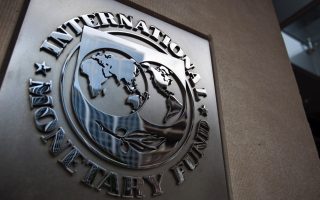Counting the cost for Greece and Europe

When Greek leaders began a shift in policy last year to ease themselves out from under the tutelage of foreign creditors, they hoped it would bring economic as well as political gains.
Nine months on, falling output and a slump in asset values have racked up costs to the economy that by one measure stand at over 60 billion euros, or a third of national income, while EU states and the IMF may have to lend Athens three times more than they had planned to bail out Greece for a third time.
With difficult negotiations about to start and capital controls still in force, further missteps and uncertainty mean the bill is likely to rise even further throughout the summer.
"The Greek negotiating stance was not a huge success," said Christoph Weil, European economist at Commerzbank. "It is clear that the Greek economy is in a strong recession. In the first two quarters of this year it is clearly a result of Greek government policies."
In the second half of 2014, center-right Prime Minister Antonis Samaras, hoping to be re-elected, began exploring how to get out of the tight supervision of the EU, ECB and IMF creditors known as the "troika", an institution hated by many Greeks.
Growth was picking up and Athens had managed to raise funds in the market. Samaras hoped to end the eurozone bailout in February and quit the IMF program by arranging a new, one-year back-up facility of 20-30 billion euros with the eurozone.
Today, after Samaras's gamble on early elections saw leftist Alexis Tsipras take power in January with a mandate to end austerity, output is shrinking fast and creditors expect Greece, which defaulted last month on the IMF, to be shut out of credit markets for up to three years and need 80-100 billion euros.
Adding together unrealized potential GDP, lost asset value on listed equities and the shrinking capital base of Greek banks, produces a figure of 63 billion euros, based on forecasts and data published by the creditors and others.
Doubts about euro membership
That number, calculated by Reuters, does not reflect the loss of value by other Greek assets or less tangible or future damage due, for example, to lost trust among investors and lenders and to increased doubts that Greece can remain in the eurozone.
"The fact that Grexit was so clearly an option in the debate will continue to make foreign investment complicated," said Mark Wall, chief eurozone economist at Deutsche Bank in London.
This week, the IMF and European Commission published analyses of Greece's financial position pointing to a rapid deterioration since the end of 2014 and especially this month, when Athens imposed capital controls to prevent a bank run after it rejected a loans-for-reforms deal.
"The figures show that the huge downturn has purely political reasons — insecurity," one EU official said, adding that growth elsewhere in Europe should have boosted the economy.
In the bureaucratic language of the Commission report: "There are substantial financial stability risks in Greece which are caused by the uncertainty on the economic and financial policies of the Greek authorities over the last half year."
The Commission in early November expected the Greek economy to expand by 2.9 percent this year, up from 1 percent growth in 2014. In 2016, growth was seen accelerating to 3.7 percent.
Creditors now expect GDP to contract by up to 4 percent this year, even assuming the smooth implementation of a new bailout.
That difference in growth translates into 12.6 billion euros in 2015, economists estimate. Another 9.8 billion euros will be lost in expected growth differences in 2016.
Most expensive FinMin
"Varoufakis was the most expensive finance minister in history," one senior EU official said, reflecting the bitterness many feel towards the Marxist economist Tsipras fired last week.
Athens stock market capitalization was 64 billion euros in December when Samaras called the election he went on to lose.
By June 25, just before capital controls were imposed, the stock exchange had lost a quarter of its value.
Greek banks have suffered. Last year, they attracted 8 billion euros in private capital and issued unsecured bonds. Now creditors estimate the sector may need 25 billion in additional capital. The banks only survive thanks to 89 billion euros of ECB emergency liquidity assistance (ELA).
The number of non-performing loans in Greece rose to 36 percent at the end of the first quarter and 8 percent is classified as restructured against 31 percent at the end of September.
Greece sold 5-year bonds at a yield of 4.95 percent in April 2014 with 93 percent of the demand from international investors. But it was cut off from viable market borrowing again this year and the yield on that bond maturing in 2019 bond is now 19.7 percent.
"Greece's public debt has become highly unsustainable," the IMF said in its analysis. "This is due to the easing of policies during the last year, with the recent deterioration in the domestic macroeconomic and financial environment," it said.
"If you add up all the aid that the eurozone has given Greece, it is some half a trillion euros, transferred to an economy of 180 billion (euros annual GDP). That is an enormous transfer of wealth," the senior EU official said, echoing the frustration among creditor governments, many of them poorer than Greece.
The experience of negotiating with ministers in Athens has also soured many, fueling arguments that it may be cheaper for Europe to push Greece out of the euro now.
The biggest factor in that argument is the uncertainty that Greece's status creates across the continent, as well as the potential for one day having to write off much of its debt.
There are other costs, too. There have been 10 meetings of the 19 eurozone finance ministers in the past month, each preceded by meetings of officials, and three summits of the 19 eurozone leaders, just to deal with Greece.
"Imagine if you value a minister's time at 1,000 euros per hour, which is a low number, and the heads of government time at 2,000 euros per hour," one official said.
"And you have hundreds of people spending hundreds of hours across the eurozone."
[Reuters]





